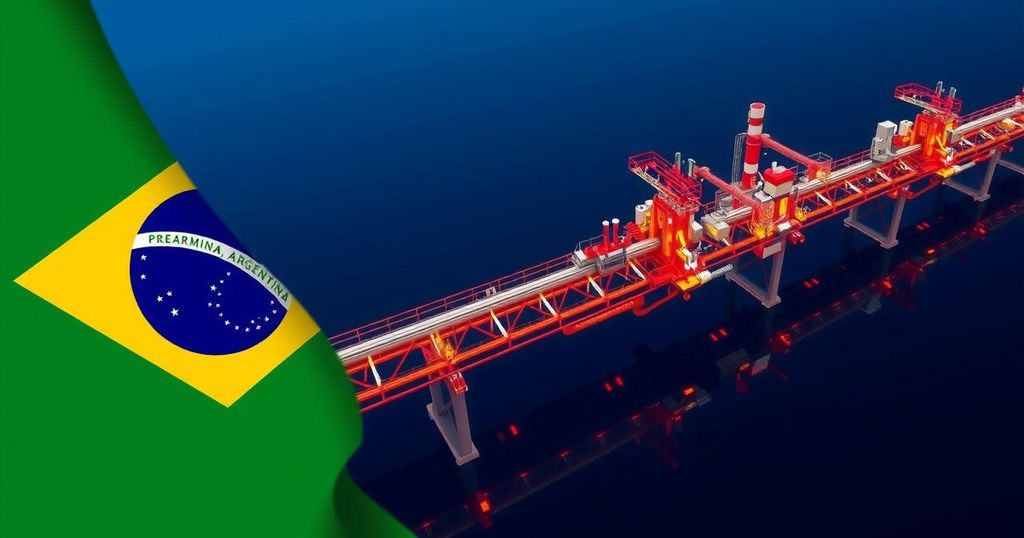Brazil and Argentina have signed a deal with Bolivia’s YPFB to transport natural gas from the Vaca Muerta shale formation in Argentina. This contract allows for the transportation of gas to Brazil via Bolivian infrastructure, amidst declining gas exports from Bolivia. Argentina aims to boost its export capabilities, leveraging its major shale gas reserves through this collaborative venture.
Brazil and Argentina have entered into a significant agreement with Bolivia’s state energy company, YPFB, to transport natural gas from the Vaca Muerta shale formation located in Argentina, as the region navigates a transition in energy supply. This contract, signed on November 22, allows YPFB to facilitate the transportation of Argentine natural gas to Brazil utilizing existing Bolivian infrastructure. This partnership emerges as Bolivia, once a key supplier, has experienced a sharp decline in its gas production, prompting Argentina and Brazil to seek alternate energy sources.
The recent contract confirms Grupo Matrix Energia of Brazil and TotalEnergies of Argentina’s inaugural collaboration with YPFB. Notably, YPFB stated that this agreement is a pivotal measure in ensuring that gas supplies from Argentina reach Brazilian markets, thereby enhancing the regional energy integration effort. Amid a backdrop of diminished Bolivian exports, which have impacted both Argentina and Brazil—where gas deliveries to Argentina ceased in September—the need for reliable gas transportation has become imperative.
Argentina, which possesses the second-largest shale gas reserves globally, aims to enhance its position as a gas exporter but faces challenges such as developing an efficient pipeline network and establishing a commercial framework for tariff negotiations. The agreement also includes provisions for YPFB’s natural gas transportation entities to manage and operate the flow of gas through its 1,000-kilometer pipeline infrastructure connecting Argentina with Brazil. Additionally, TotalEnergies has secured permits to export natural gas from the Austral and Neuquen Basins to Brazil, indicating a strategic move towards consolidating energy supply in the region.
The transportation of natural gas is crucial for meeting energy demands in South America, particularly in Brazil and Argentina. The Vaca Muerta formation in Argentina is known for its significant shale gas reserves, positioning Argentina as a potential gas exporter. Bolivia’s YPFB, historically a key gas supplier, has faced production declines, compelling neighboring countries to seek alternative gas sources and to explore cooperative agreements that utilize existing infrastructure to facilitate trade. This agreement signifies a shift toward regional cooperation and energy integration in response to changing supply dynamics.
In conclusion, the agreement between Brazil, Argentina, and Bolivia’s YPFB marks a significant development in regional energy cooperation, facilitating the transport of natural gas from Argentina’s Vaca Muerta shale formation to Brazil. As Bolivia’s gas exports decline, this partnership highlights the necessity for collaborative strategies to secure an energy supply and strengthen regional energy integration. As Argentina aims to broaden its role as a gas exporter, the successful execution of this agreement will be crucial for meeting regional energy demands.
Original Source: www.naturalgasworld.com







